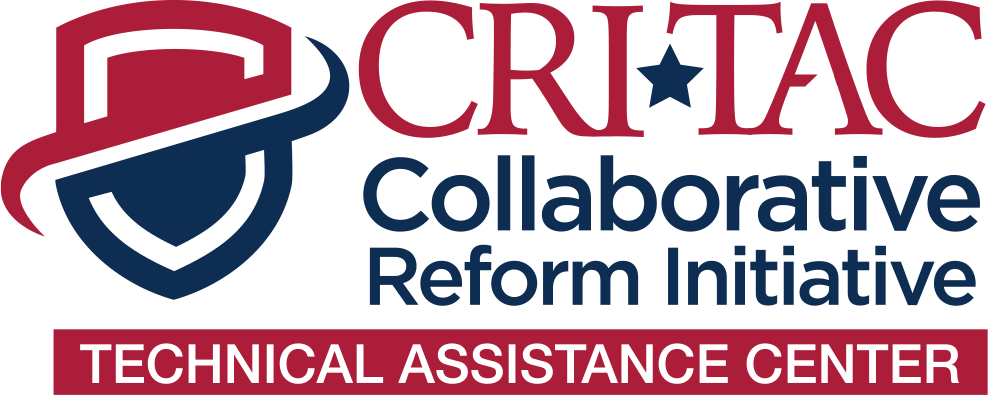Contact Us
To provide feedback on the Community Policing Dispatch, e-mail the editorial board at CPDispatch@usdoj.gov.
To obtain details on COPS Office programs, publications, and resources, contact the COPS Office Response Center at 800-421-6770 or AskCopsRC@usdoj.gov

U.S. Department of Justice
Office of Community Oriented Policing Services
Washington, DC 20530
 When Jeff Caponera was appointed Chief of the Anna (Texas) Police Department (APD) in January 2018, the department was experiencing high turnover. During the last six months of 2017, the APD had five officers leave for opportunities with neighboring agencies. That’s a hard pill to swallow for any agency, let alone one with a sworn contingency of 17, including the Chief of Police. There was also a lot of instability in the city at that time. Three new members of the council, including the mayor, were elected. The city did not have a clear direction, and there was confusion about the expectations of staff. In addition, the APD’s applicant pool was nearly nonexistent.
When Jeff Caponera was appointed Chief of the Anna (Texas) Police Department (APD) in January 2018, the department was experiencing high turnover. During the last six months of 2017, the APD had five officers leave for opportunities with neighboring agencies. That’s a hard pill to swallow for any agency, let alone one with a sworn contingency of 17, including the Chief of Police. There was also a lot of instability in the city at that time. Three new members of the council, including the mayor, were elected. The city did not have a clear direction, and there was confusion about the expectations of staff. In addition, the APD’s applicant pool was nearly nonexistent.
Chief Caponera attended the International Association of Chiefs of Police (IACP) 2018 Annual Conference and Exposition in Orlando, Florida. Recognizing that changes needed to occur for the APD to attract and retain quality applicants, Caponera attended several breakout sessions focused on recruitment and retention, where he was introduced to the Collaborative Reform Initiative Technical Assistance Center (CRI-TAC) and its myriad free resources. After researching other options and conducting a cost/benefit analysis, the APD determined the technical support, subject matter expertise, and guidance provided by CRI-TAC would far exceed the other options available.
The process to obtain assistance from CRI-TAC was simple. The response to the APD’s request for assistance was prompt and the subsequent communications and requests were clear. The CRI-TAC project manager set expectations and timelines early on but was flexible and understanding of unexpected delays. During a site visit at the APD set up by the CRI-TAC team, the subject matter expert and project coordinator were professional; they took time to meet with APD staff to gain insight about current practices and policies and to gain a good understanding of the vision for APD’s recruiting and retention program. This step in the process is critical to the success of the program and should be carefully planned so all stakeholders can have input.
The support, expertise, and guidance provided by CRI-TAC helped the APD develop a recruiting program that nearly quadrupled the pool of quality applicants. The applicants now come from diverse backgrounds, and nearly 60 percent have college degrees. Through the advice received from CRI-TAC, the APD was able to streamline the hiring process to a little less than 90 days from the date of application to date of hire, which reduced the number of applicants APD was losing to other agencies because of the previous lengthier process.
The APD created a recruitment team to develop material and processes. The team worked closely with the A/V Media class at a local high school to produce a new recruiting video that gives insight into the APD’s culture and opportunities.. This recruiting video allowed the APD to reach a broader spectrum of applicants. The recruitment team, together with the APD’s human resources director and the city manager’s office, also developed a defined step pay plan that allows for lateral entry options and reduced the number of steps required to reach top out. In addition, the recruiting team worked with a local printing company to create banners and other recruiting materials that are now used during career fairs and recruiting events. These are only a few examples of the successful programs the APD’s recruiting team has created.
The work the APD completed through CRI-TAC recently earned Chief Caponera a spot in a U.S. Department of Justice, Office of Community Oriented Policing Services (COPS Office) recruiting and retention round table discussion in Reno, Nevada. During the meeting, he showcased the APD’s successes, spoke about challenges and how to overcome them, and—most important—highlighted that the APD has successfully hired seven new officers and has not lost a single officer to another agency since improving the recruitment and retention programs.
About CRI-TAC: Solutions by the Field, For the Field
 Every day, law enforcement agencies and the communities they serve face challenges. Some agencies struggle to meet drastically changing service demands, while others are unsure about how to allocate resources, incorporate promising practices, or spread the word about new programs. Some agencies are looking for new and effective ways to engage their communities. If you are a law enforcement executive looking for support, the CRI-TAC is here to help. Funded by the COPS Office, the CRI-TAC offers no-cost, customized solutions to law enforcement agencies throughout the United States. The solutions provided are tailored to the agency and informed by cutting-edge innovation and evidence-based and promising practices.
Every day, law enforcement agencies and the communities they serve face challenges. Some agencies struggle to meet drastically changing service demands, while others are unsure about how to allocate resources, incorporate promising practices, or spread the word about new programs. Some agencies are looking for new and effective ways to engage their communities. If you are a law enforcement executive looking for support, the CRI-TAC is here to help. Funded by the COPS Office, the CRI-TAC offers no-cost, customized solutions to law enforcement agencies throughout the United States. The solutions provided are tailored to the agency and informed by cutting-edge innovation and evidence-based and promising practices.
Law enforcement agencies must be prepared to respond to a broad range of issues. Because of this, the CRI-TAC can address more than 35 critical law enforcement areas, including crime analysis, active shooter response, tribal law enforcement, officer safety and wellness, community engagement, human trafficking, hate crimes, and traffic safety. The CRI-TAC offers several technical assistance services delivered by subject matter experts from the field, including the following:
- Resource referral — Toolkits, reports, and other relevant publications
- Web-based training — Recorded webinars and live online training
- In-person training — Existing and customized on-site training
- Virtual mentoring — Connections to subject matter experts to share information and promising practices via phone or video conference call
- On-site consultation — Visits to the requesting agency to collaborate with agency leaders and provide guidance on best/promising practices and tailored solutions
- Agency peer exchange — Assistance in facilitating meetings among agency members and other public and private sector stakeholders
Learn More
Learn more about the CRI-TAC, download a brochure, or request assistance for your agency.
Jeff A. Caponera, Chief (ret.)
Anna (Texas) Police Department
Emily Kuhn, Project Manager
International Association of Chiefs of Police
Subscribe to Email Updates
To sign up for monthly updates or to access your subscriber preferences, please enter your email address in the Subscribe box.






